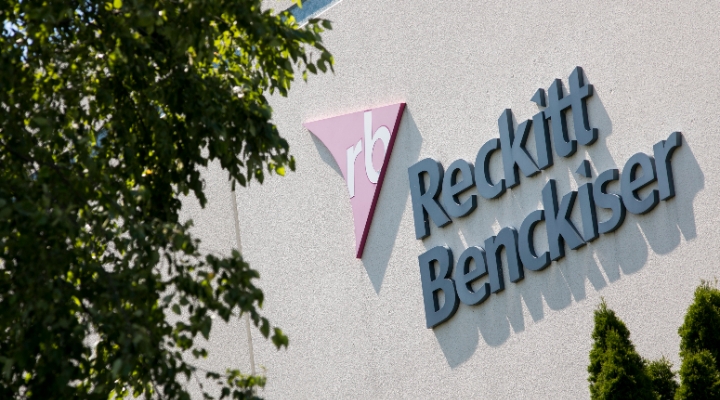
Check out Morningstar Canada's Cannabis Week Special Report
The legalisation of Cannabis in some parts of the US and in Canada presents a compelling investment opportunity for international investors, some experts believe.
Some 23 US states have legalised medical cannabis, while 11 states as well as Washington DC and Canada allow both medical and recreational use of the drug. Experts expect that more states and other countries across the globe will soon follow suit.
Indeed, Morningstar analysis indicates the legal cannabis sales could grow nearly nine times by 2030. The global market, currently worth around $3.7 billion a year, could grow to an eye-watering $43 billion by then.
Market growth will be driven by wider availability and the conversion of black market and non-consumer users. Morningstar estimates that by 2030, around 10% of the US population – around 35 million people – could be recreational cannabis users, the equivalent of 7,000 tonnes of annual cannabis demand.
In the US, federal laws continue to prohibit the use of cannabis but when that prohibition is eventually removed, cannabis companies will be able to access normal banking services and pay more normal tax rates, which will help them grow further.
Cannabis is used medically typically in pain management for the relief of symptoms such as nausea and vomiting, chronic pain and insomnia in patients who haven’t responded to traditional treatments. Companies such as Aurora (ACB) and Curaleaf (CURLF) supply the medical market, and are set to benefit as the use of the drug in pain management becomes more common. In the medical market, estimates range from 20 million to 105 million people in the US using cannabis by 2030.
Morningstar analyst Kris Inton says: “The FDA (the US drug regulator) has begun to show signs of acceptance of cannabis as a medicine through its approval of some cannabis-derived drugs for prescription use such as Marino, Syndros and Cesamet. The most significant approval was for Epidiolex in June 2018 which uses CBD to treat seizures related to specific forms of epilepsy”
But much of the opportunity lies outside the medical world, and analysts particularly expect to see a pick-up in the consumption of cannabis-infused food and drink products. While Inton says it is “far too early to tell which companies will emerge in this budding space” some businesses have displayed a keen interest in doing so.
Nasdaq-listed Tilray (TLRY), for example, traditionally focused on the Canadian medical market but is moving into recreational products. These now account for about a third of sales, a proportion which could grow to 50% by 2028. Its food product business is estimated to account for 35% of business by that time. It has also partnered with drinks giant Anheuser-Busch InBev (ABI) to develop a cannabis-infused drinks range.
This is one way in which more nervous investors might gain exposure to the trend without taking on direct exposure to cannabis companies – investing in, say, AB InBev rather than Tilray.
Food and Drinks
Analysts expect a pick-up in cannabis-infused food and drinks in particular, “although it is far too early to tell which companies will emerge in his budding space”. Investments in companies such as Constellation Brands and AB InBev could provide more diluted exposure to the trend. US drinks firm Constellation Brands (STZ), whose brands include Corona beer and Svedka Vodka, invested in cannabis firm Canopy Growth (WEED) in November 2018. It now has a 37% stake in the business and the benefit can be seen on both sides of the transaction. “Not only did Canopy get much-needed growth capital, but it is receiving important marketing and product development experience that can help it develop its recreational products,” says Inton.
Tobacco firm Altria Group (MO), meanwhile invested 2.4 billion Canadian dollars (£1.47 billion) for a 45% stake in Toronto-listed Cronos (CRON), although the synergies between cannabis and tobacco are arguably weaker than between cannabis and drinks. Inton says: “We think partnerships with alcohol companies can help cannabis companies develop infused drinks. With tobacco companies, cannabis firms get expertise on navigating strict regulations, particularly for marketing and advertising.” The tobacco companies, meanwhile, can diversify their business; while cannabis is not likely to surpass alcohol’s popularity, it could exceed tobacco use.
Another way to access the theme is through Scotts Miracle-Gro (SMG), which is the largest cultivation equipment supplier in the US and Canada. Its market share for hydroponic growing equipment is around 50%. Analysts say profits derived from cannabis related products could accounts for 30% of companywide profits by 2028. “It is a way for investors to play the general growth of the cannabis industry without betting on a single cannabis company,” says Inton. Its Hawthorne business sells everything from specialised fertilisers and crop chemicals for cannabis plants to growing systems including fixtures and lighting.
Indirect Access
Other ways to get exposure – cultivators, processors, dispensaries and ancillary businesses such as marketers, accountants. Ancillary products including cultivation technology and equipment, packaging, processing and testing equipment, surveillance and security equipment.
A number of ETFs have been launched to track the fortunes of cannabis companies. The Evolve Marijuana Fund (SEED), for example, invests in cannabis firms including Aurora, Canopy Growth and HEXO (HEXO). The fund, which charges just 0.33%, has returned 38.1% year to date. Being a fairly nascent sector with few players, however, the portfolio contains just 25 stocks.
Active equity funds can also provide exposure to these companies. The four-star rated Artemis US Smaller Companies fund has 1% of its assets in Canopy Growth. The one-star rated Allianz Global Agricultural Trends fund has 5.7% of its portfolio in the same stock, according to data from Morningstar Direct. Canopy Growth is one of Morningstar analysts’ preferred names in the sector, with a four-star rating despite the fact it has no Economic Moat and a very high Uncertainty Rating. They also like four-star rated Curaleaf.
The Morningstar View






























